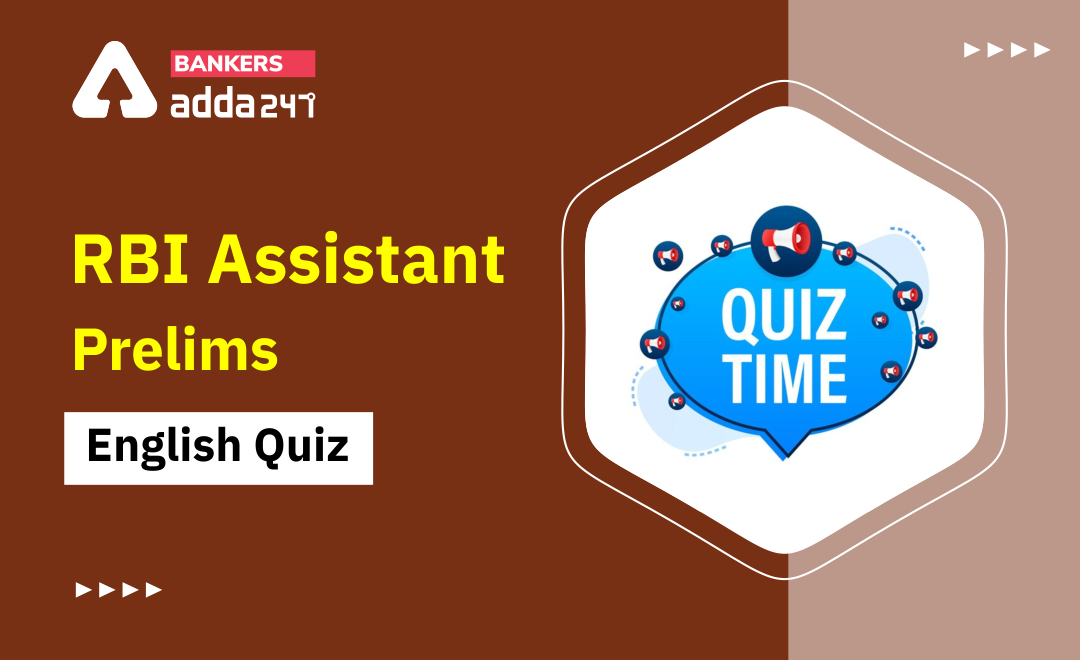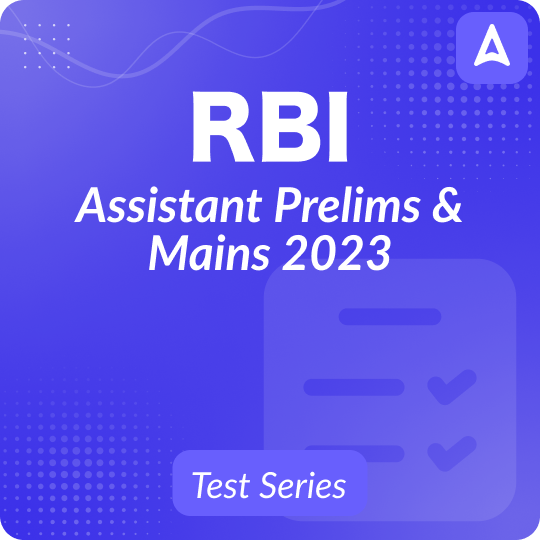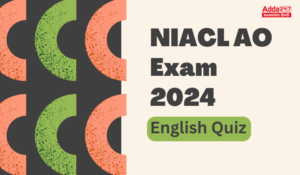
TOPIC: Reading
Comprehension
Directions (1-8): Read the following passage
and answer the given questions. Some words are highlighted to help you answer
the questions.
a real footprint. It reveals where you’ve been, how long you stayed and what
you’ve been doing there. Every time you register for an online service, send an
email, download a video or upload a photo, the information can be accessed and
your digital footprint can be revealed. This shouldn’t necessarily be worrying
but it is advisable to be aware of your digital footprint and to be cautious
and sensible when you are online.
Don’t forget to log off when you leave a website, especially
if you are using a shared computer. If you don’t, someone can easily pretend to
be you!
Don’t tell anyone your passwords and don’t write them down in
an obvious place. Make them more complex by using a combination of
letters (A), numbers and punctuation marks.
Tell an adult if you come across anything online that makes
you upset, anxious or concerned. There are ways to report inappropriate
or abusive content and in most cases web managers respond rapidly.
and the bookmark function on your computer or mobile device. This is a way that
your digital footprint can work in your favour, but remember to clear your
browser history regularly.
If you want to post comments online, you don’t have to use
your own name. Invent a nickname to use instead. You can also use a picture
instead of a real photo.
Protect your identity online. Be careful about who you share
personal information with and always think twice before sharing details like
your email, home address, school or phone number with someone.
your digital footprint. It’s now quite _________(I)__________ for colleges,
universities and employers to check out the online profiles of possible
candidates as part of their application process. There are cases of people
having missed out on jobs and places in college because their digital footprint
didn’t impress the recruiters. So, remember: keep safe, don’t put too much
personal information online and always think carefully before you post
something. Ask yourself, ‘Would I be happy for absolutely everyone to see
this?’
Q1. Why does the author advise the readers to be careful about
our digital footprint?
(a)like a real footprint, any site you visit, things you
download or upload, email you sent, can mark your presence.
(b) Many times,
recruiters from jobs or colleges choose the candidates based on their digital
footprints.
(c) As through digital footprints, the whereabouts of a person
can be easily traced
(d) Both (a) and (b)
(e) None of these
Q2. What is a digital footprint?
(a) The information
about a particular person that exists on the internet as a result of their
online activity.
(b) The footprints that are left behind as a result of our
setting up of the online services like Wi-Fi, routers, etc.
(c) They are text files with small pieces of data you receive
in your mail regularly.
(d) All of the above
(e) None of the above
Q3. Which of the following word will be placed in the blank
(I)?
(a) common
(b) artificial
(c) emphatic
(d) petulant
(e) None of these
Q4. Choose the option which best describes the content of the
passage.
(a) How to register online for your college application?
(b) Ways to protect yourself online against bank fraud or
identity theft committed by cybercriminals.
(c) How can one be mindful
of one’s digital footprint and how to use the internet with caution and common
sense.
(d) All of the above
(e) None of these
Q5. Choose the synonym of INAPPROPRIATE as highlighted
in the passage.
(b) constitute
(c) evident
(d) improper
(e) dwell
Q6. Choose the antonym of RAPIDLY as highlighted in the
passage.
(a) accordingly
(b) elegantly
(c) solemnly
(d) thankfully
(e) leisurely
Q7. Which phrase out of the following phrases can be used to
replace the highlighted phrase (A) a combination of letters?
(a) a flight of letters
(b) a fusion of letters
(c) a packet of letters
(d) a deck of letters
(e) None of these
Q8. The third paragraph of the passage mentions a word that is
similar to alias. Select which word it is.
(a) nickname
(b) details
(c) history
(d) function
(e) favour
Directions (9-15): Read
the following passage and answer the given questions. Some words are
highlighted to help you answer the questions.
Can talking on a mobile
phone be hazardous to your health? It is difficult to know for sure.
Some research suggests that heavy users of mobile phones are at a greater risk
of developing cancerous brain tumours. However, many other studies suggest
there are no links between cancer and mobile phone use.
The main problem with the
current research is that mobile phones have only been popular since the 1990s.
As a result, it is impossible to study long-term exposure to mobile phones.
This concerns many health professionals who point out that certain cancers can
take over twenty years to develop. Another concern about these studies is that
many have been funded by the mobile phone industry or those who benefit from
it.
Over five billion people
now use mobile phones on a daily basis, and many talk for more than an hour a
day. Mobile phone antennas are similar to microwave ovens. While both ______(II)_______
electromagnetic radiation (EMR), the radio waves in mobile phones are lower in
frequency. Microwave ovens have radio wave frequencies that are high enough to
cook food, and they are also known to be dangerous to human tissues like those
in the brain. The concern is that the lower-frequency radio waves that mobile
phones rely on may also be dangerous. It seems logical that holding a heat
source near your brain for a long period of time is a potential health hazard.
Some researchers believe
that other types of wireless technology may also be dangerous to human health,
including cordless phones, wireless gaming consoles, and laptop or tablet
computers with wireless connections. They suggest replacing all cordless
and wireless devices with wired ones where possible. They also say that many
cordless phones can emit dangerous levels of Electromagnetic Radiation even
when they are not in use. They even suggest keeping electronic devices such as
desk-top and tablet computers out of the bedroom, or at least six feet from the
head while we’re sleeping.
Q9. The author states that
any long-term exposure to mobile phone is tough to study. Why is it so
according to the passage?
(a) Because of its complicated
designs and structures, scientists are unable to look into it.
(b) As mobile phone has
become an indisputable part of our life style, it is difficult to evaluate its
separate effect on health.
(c) As the popularity of mobile phone has been
seen only from 1990’s, its long-time predicaments on health can’t be estimated.
(d) Only (a)
(e) All of the above
Q10. Which is recommended
when using a mobile phone?
(a) Holding it to your ear
(b) Using wired devices by replacing the wired
one
(c) Doing a handstand
(d) All of the above
(e) None of these
Q11. Choose the
appropriate phrase to fill the blank (II) and help make the sentence contextual
sense.
(a) hold on
(b) drop in
(c) add up
(d) rely on
(e) run into
Q12. Which are NOT a form of electromagnetic
radiation?
(a) radio waves
(b) microwaves
(c) sound waves
(d) Only (a) and (b)
(e) None of these
Q13. Choose the synonym of
REPLACING as highlighted in the passage.
(a) substituting
(b) ambiguous
(c) eminent
(d) insatiable
(e) subtle
Q14. Choose the antonym of
SIMILAR as highlighted in the passage.
(a) surmount
(b) tremendous
(c) deficient
(d) alien
(e) bittersweet
Q15. Which of the
following word is the most similar to the highlighted word HAZARDOUS?
(a) entrenched
(b) dispatch
(c) adequate
(d) risky
(e) All of the above
SOLUTIONS:
S1. Ans (d)
Sol. The correct answer is option (d): Both (a) and (b).
After going through the complete passage, we can conclude (a)
and (b) are true, refer, “Every time you go online you leave a trail. This is
just like a real footprint……………It’s now quite common for colleges,
universities and employers to check out the online profiles of possible
candidates as part of their application process. There are cases of people
having missed out on jobs and places in college because their digital footprint
didn’t impress the recruiters.”
S2. Ans (a)
Sol. The correct answer is option (a): The information
about a particular person that exists on the internet as a result of their
online activity.
We can deduce this answer with the help of the information
given in the first paragraph: Every time you go online you leave a trail.
This is just like a real footprint. It reveals where you’ve been, how long you
stayed and what you’ve been doing there. Every time you register for an online
service, send an email, download a video or upload a photo, the information can
be accessed and your digital footprint can be revealed.
S3. Ans (a)
Sol. The correct answer is option (a): common. It means
occurring, found, or done often; prevalent.
Artificial means made or produced by human beings rather than
occurring naturally, especially as a copy of something natural.
Emphatic means expressing something forcibly and clearly.
Petulant means (of a person or their manner) childishly sulky
or bad-tempered.
S4. Ans (c)
Sol. The correct answer is option (c).
While reading the passage, we were warned of our digital
footprint having various consequences. It states and educates us about what we
can do to practice safe web surfing while not giving away too much information
about ourselves which can put us at risk in the future.
S5. Ans (d)
Sol. The correct answer is option (d): improper. It
means not proper: such as. : not in accord with propriety, modesty, good
manners, or good taste.
Utter means complete; absolute.
Constitute means be (a part) of a whole.
Evident means
clearly
seen or understood; obvious.
Dwell means live in or at a specified place
S6. Ans (e)
Sol. The correct answer is option (e): leisurely. It
means acting or done at leisure; unhurried or relaxed.
Accordingly means in a way that is appropriate to the
particular circumstances.
Elegantly means in a graceful and stylish manner.
Solemnly means in a formal and dignified manner.
Thankfully means in a thankful manner.
S7. Ans (b)
Sol. The correct answer is
option (b): a fusion of
letters.
Fusion: A fusion of
different qualities, ideas, or things is something new that is created by
joining them together.
This meaning is the most
similar of the word combination.
S8. Ans (a)
Sol. The correct answer is option (a): nickname.
Since alias means a
false name used to conceal one’s identity; an assumed name, we can take nickname
as the correct answer.
S9. Ans (c)
Sol. The correct answer is
option (c):
This answer is present in
the second paragraph where it says: The main problem with the current
research is that mobile phones have only been popular since the 1990s. As a
result, it is impossible to study long-term exposure to mobile phones. This
concerns many health professionals who point out that certain cancers can take
over twenty years to develop. Another concern about these studies is that many
have been funded by the mobile phone industry or those who benefit from it.
S10. Ans (b)
Sol. The correct answer is option (b)
The answer is present in
the last paragraph where it mentions: Some researchers believe that other
types of wireless technology may also be dangerous to human health, including
cordless phones, wireless gaming consoles, and laptop or tablet computers with
wireless connections. They suggest replacing all cordless and wireless devices
with wired ones where possible.
S11. Ans (d)
Sol. The correct answer is
option (d): rely on.
Rely on- to count on,
depend on, trust.
S12. Ans (c)
Sol. The correct answer is
option (c): sound waves.
The answer can be found in
the third paragraph: Mobile phone antennas are similar to microwave ovens.
While both rely on electromagnetic radiation (EMR), the radio waves in mobile
phones are lower in frequency.
S13. Ans (a)
Sol. The correct answer is
option (a)
Substituting means use or
add in place of
Ambiguous means open to
more than one interpretation; not having one obvious meaning.
Eminent means (of a
person) famous and respected within a particular sphere.
Insatiable means (of an appetite or desire) impossible to
satisfy.
Subtle means (especially
of a change or distinction) so delicate or precise as to be difficult to
analyse or describe.
S14. Ans (d)
Sol. The correct answer is
option (d): alien.
Alien- belonging to a foreign country / unfamiliar
and disturbing or distasteful.
Surmount- overcome (a difficulty or obstacle).
Tremendous- very great in amount, scale, or intensity.
Bittersweet- arousing
pleasure tinged with sadness or pain.
Deficient- not having enough of a specified quality or
ingredient.
S15. Ans (d)
Sol. The correct answer is
option (d): risky.
Risky- full of the
possibility of danger, failure, or loss.
Dispatch- send off to a destination or for a purpose.
Adequate- satisfactory or acceptable in quality or
quantity.
Entrenched- (of an
attitude, habit, or belief) firmly established and difficult or unlikely to
change; ingrained.










 Practice for English Section: 15 Cloze T...
Practice for English Section: 15 Cloze T...
 Bank Exams के लिए Error Correction, Gram...
Bank Exams के लिए Error Correction, Gram...
 English Quiz For NIACL AO Mains 2024 Exa...
English Quiz For NIACL AO Mains 2024 Exa...

